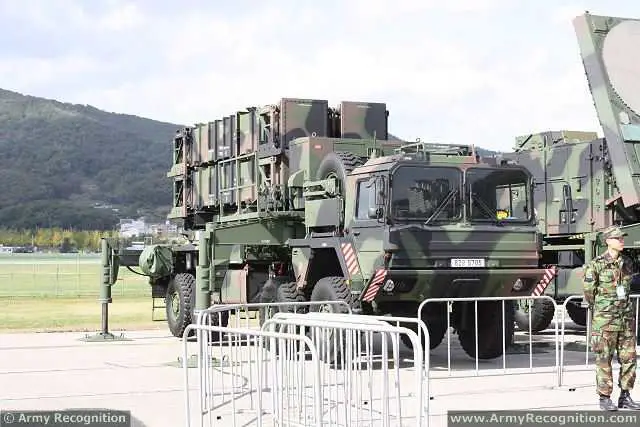Breaking news
South Korea will develop its own surface-to-air defense missile system 0306145.
| a | |||
Defence & Security Industry News - South Korea |
|||
| Tuesday, June 3, 2014 01:27 PM | |||
| South Korea will develop its own surface-to-air defense missile system. | |||
South Korea will develop its own missile defense (MD) system to intercept
missiles at a higher altitude instead of adopting the Terminal
High Altitude Area Defense (THAAD), a military source confirmed
local media reports on Tuesday, June 3, 2014. |
|||
| Yonhap South Korean News Agency reported earlier that the military decided to develop its indigenous long-range surface-to-air missile (L-SAM) , which is compatible with the U.S.-based Lockheed Martin's THAAD system based on a pilot study by the Defense Acquisition Program Administration, the country's arms procurement agency. The military source, who requested anonymity, said over phone " the report was true," noting detailed plans will be announced after the defense project committee's meeting on June 11. It is expected to take some seven years to develop the L-SAM system, and it will be deployed between 2023 and 2024. South Korea has pushed for the Korea Air and Missile Defense, or a South Korea-type MD system, which focuses on a terminal-phase, low-altitude missile defense. Seoul's Defense Ministry has said that the low-tier MD refers to intercepting missiles at an altitude of less than 100 km. Seoul will upgrade its Patriot PAC-2 missiles to Lockheed Martin's PAC- 3 to shoot down missiles, possibly launched from the Democratic People's Republic of Korea (DPRK), at an altitude of less than 40 km. The L-SAM system will intercept missiles at an altitude of 40 km or above, moderating worries that the Patriot PAC-2 and PAC-3 are not sufficient to shoot down ballistic missiles from the DPRK, possibly tipped with nuclear warheads. The THAAD, designed to intercept missiles at an altitude of 40- 150 km, has been picked as one of candidates for Seoul's missile defense buildup, but the defense ministry has repeatedly denied the THAAD adoption. |
|||




















